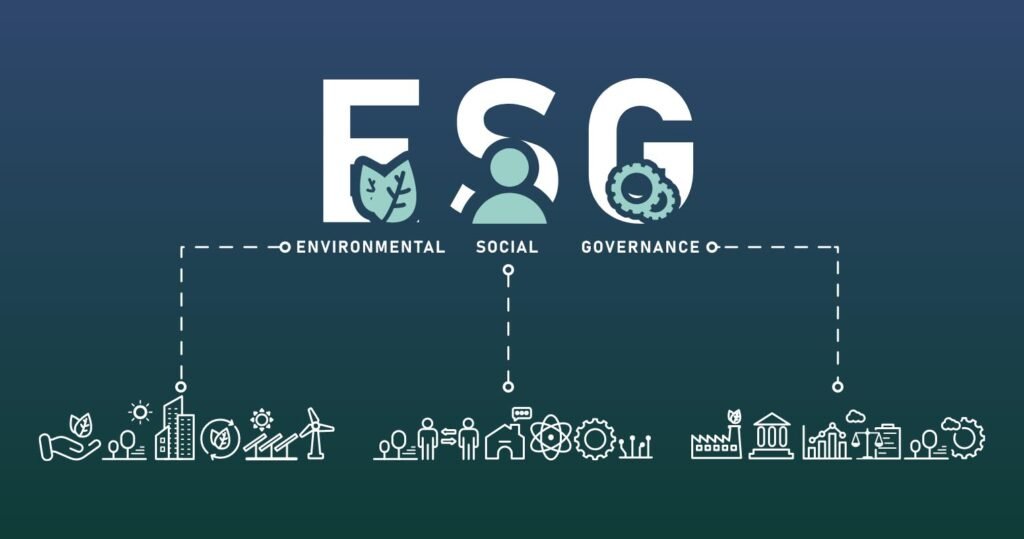The United Arab Emirates (UAE) has taken a significant step towards sustainability by making Environmental, Social, and Governance (ESG) reporting mandatory for businesses. This move aligns with global trends, encouraging companies to be more transparent about their impact on the environment and society. With this new requirement, businesses operating in the UAE must now disclose their sustainability efforts and governance practices. But what does this mean for companies, and how will it impact the business landscape? Let’s break it down.
What is ESG Reporting?
ESG reporting refers to the disclosure of a company’s environmental impact, social responsibility, and governance policies. It provides stakeholders, including investors and customers, with insights into how a company manages issues like carbon emissions, diversity and inclusion, ethical labor practices, and corporate governance. Many international markets have already implemented ESG reporting requirements, making it a crucial factor for businesses aiming to remain competitive on a global scale.
Why is ESG Reporting Now Mandatory in the UAE?

The UAE government has introduced this mandate to support the country’s sustainability goals, attract responsible investment, and align with international ESG standards. The UAE’s Vision 2030 and its commitment to achieving net-zero emissions by 2050 have driven the need for businesses to be more accountable for their environmental and social impact. Additionally, global investors and partners are increasingly prioritizing ESG-compliant businesses, making transparency essential for growth and funding opportunities.

Who Does This Rule Apply To?
The ESG reporting mandate applies to both large corporations and small-to-medium enterprises (SMEs) operating in the UAE. However, the level of disclosure required may vary based on the company’s size, industry, and potential environmental and social impact. Certain high-impact sectors, such as energy, construction, and manufacturing, are expected to face stricter reporting requirements compared to low-impact service industries.
How Will Businesses Be Affected?
1. Increased Accountability
Companies will now have to evaluate their environmental footprint, labor policies, and governance structures in detail. This will push businesses to adopt more responsible and ethical practices.

2. Compliance Costs and Resource Allocation
Implementing ESG reporting may require businesses to hire sustainability experts, invest in data collection systems, and train employees on ESG standards. While this might increase operational costs initially, companies that embrace ESG early could gain a competitive advantage by attracting investors and customers who value sustainability.
3. Better Market Reputation
Companies that actively promote sustainability and ethical business practices are likely to enhance their brand image. Consumers are becoming more environmentally conscious, and businesses with strong ESG commitments often enjoy higher customer loyalty and trust.
What Happens If Businesses Don’t Comply?
Non-compliance with ESG reporting requirements could lead to penalties, restrictions on business operations, and difficulty in securing funding. Investors and financial institutions are also less likely to engage with companies that fail to meet sustainability standards. Moreover, businesses that ignore ESG risks could face reputational damage, leading to a loss of customers and partners.
How Can Businesses Prepare?
1. Understand the Requirements
Companies should familiarize themselves with the specific ESG reporting guidelines issued by UAE authorities. They must identify key reporting areas relevant to their industry and business model.
2. Conduct an ESG Audit
Businesses should assess their current ESG performance, pinpoint areas of improvement, and develop strategies to meet reporting requirements. Working with sustainability consultants can help streamline this process.
3. Invest in ESG Technology
Using digital tools and data analytics can make ESG tracking and reporting more efficient. Companies can leverage specialized software to monitor their environmental impact, workforce diversity, and corporate governance metrics.
4. Train Employees and Build Awareness
Educating employees about ESG principles and integrating sustainability into corporate culture will make compliance easier. Businesses should also appoint ESG officers or committees to oversee reporting efforts.
The Future of ESG in the UAE
As ESG reporting becomes the norm, UAE businesses must adapt quickly to stay competitive. This mandate is not just about compliance—it is an opportunity for businesses to build trust, improve efficiency, and contribute to a sustainable future. Companies that proactively embrace ESG practices will likely benefit from long-term growth and stronger stakeholder relationships.
With this new regulation, the UAE is reinforcing its position as a global business hub that values transparency, responsibility, and sustainability. Businesses that align with ESG principles will not only meet legal requirements but also thrive in an evolving global market. The time to act is now.
Also read: Dubai Launches Massive New Housing Project With Luxury & Affordable Homes!












